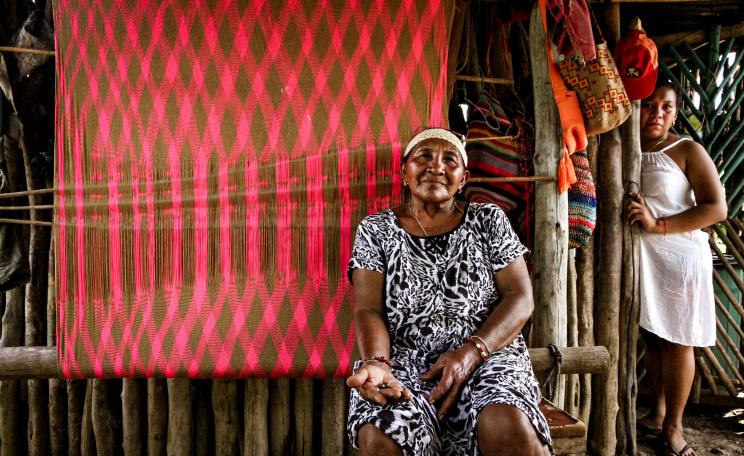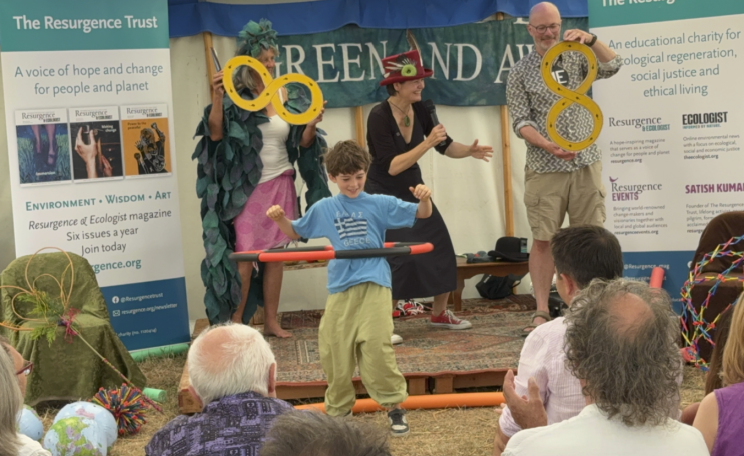We might not die from bullets, but we will die from other unfortunate consequences if we allow the environment to degrade.
Campaigners have criticised two British institutions for giving awards to president Juan Manuel Santos of Colombia, who they say is encouraging agro-industrial projects that displace local communities.
President Santos was in London recently to receive the Kew International Medal, the first head of state to be awarded the honour by the Royal Botanical Gardens (RGB) Kew. The prestigious scientific organisation said that it had selected Santos for his “ideology, foresight and work” to protect the wildlife and habitats of Colombia, the second most biodiverse country in the world after Brazil.
On taking office in 2010, Santos made protection of biodiversity one of his two main goals, along with ending the conflict with the FARC rebel group. He has pledged to double the area under national environmental protection from 13 million hectares to 28.4 million hectares by 2018. His government is also part-funding expeditions of scientists from Kew to identify and protect the country’s plant diversity.
Significant contribution
Around half of the country has never been properly explored due to the presence of FARC guerrillas in its forests. Presenting the award, Richard Deverell, director of RBG Kew said: “President Santos’ championing of biodiversity is an example to other leaders around the world as he expertly navigates the variables of climate change, food security, deforestation and peace building, alongside the recovery of large territories which for years could not be explored.”
Speaking at the award ceremony, Santos said that the environment was as important as the peace deal: “If we don’t make peace with the environment as well, we might not die from bullets but we will die from other unfortunate consequences if we allow the environment to degrade.”
Santos was also awarded the annual Chatham House Prize, presented to the person or organisation deemed by members of the Royal Institute of International Affairs to have made the most significant contribution to the improvement of international relations in the previous year.
Preventing deforestation
The institute’s members recognised Santos for his “exceptional political diplomacy and perseverance” in formally ratifying a peace agreement with the FARC rebel group, bringing an end to one of the world’s longest-running armed conflicts during which 220,000 people were killed and six million displaced.
However, Sebastian Ordoñez Muñoz, senior international programmes officer for Latin America at campaign group War on Want, said that Santos’ interest in the country’s forests was mainly aimed at opening up protected land to agroindustry through UN REDD+ schemes.
These projects are meant to mitigate climate change by offering them financial incentives to developing countries for preventing deforestation. But they have proved controversial in several countries, where communities have complained that they have been forced into agreeing the schemes without fully understanding what they were signing up to.
Indigenous people
Germany, Norway and the UK have pledged around €200 million to Colombia if it successfully reduces emissions from deforestation through REDD+ schemes. Santos’ government has also encouraged mining of coal, gold and silver, which has caused environmental destruction and displaced communities, according to War on Want.
“It’s beyond cynical that he should receive a prize at this moment when he is deepening this particular model that has wreaked havoc historically,” said Muñoz.
The Colombia Solidarity Campaign has written to president Santos, who also holds the Nobel Peace Prize, heavily criticising his handling of recent protests by indigenous people, who have recently staged nation-wide demonstrations. They claim that the government has not implemented promises made to them in the peace agreement, and that the army and police have violently suppressed legitimate protests against this.
We might not die from bullets, but we will die from other unfortunate consequences if we allow the environment to degrade.
Dangerous places
In 2017, more than 1900 people have been injured by the army and police during strikes by civilians, and oil and mining workers in various parts of the country, the organisation claims.
“To be a human rights defender, environmentalist, social leader in these times of “post-conflict”, according to your government’s terminology, is actually a high risk occupation,” the letter states.
Colombia is one of the world’s most dangerous places for environmental campaigners, with 22 murdered so far this year, according to War on Want. “It seems as though the peace process has only served to exacerbate the violence to those who defend life, water and life against destructive industries,” the campaign group said.
This Author
Catherine Early is a freelance environmental journalist and the former deputy editor of the environmentalist. She can be found tweeting at @Cat_Early76.







